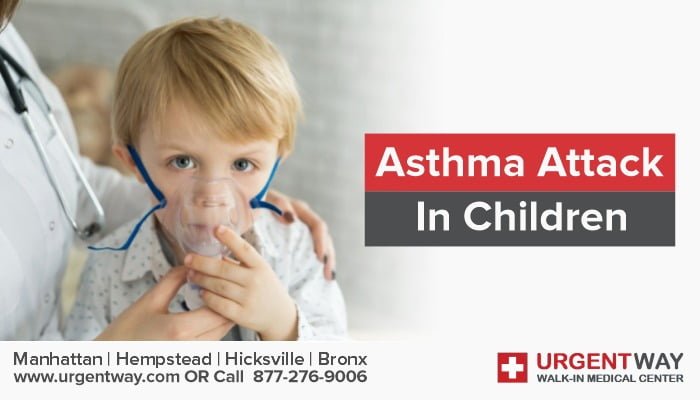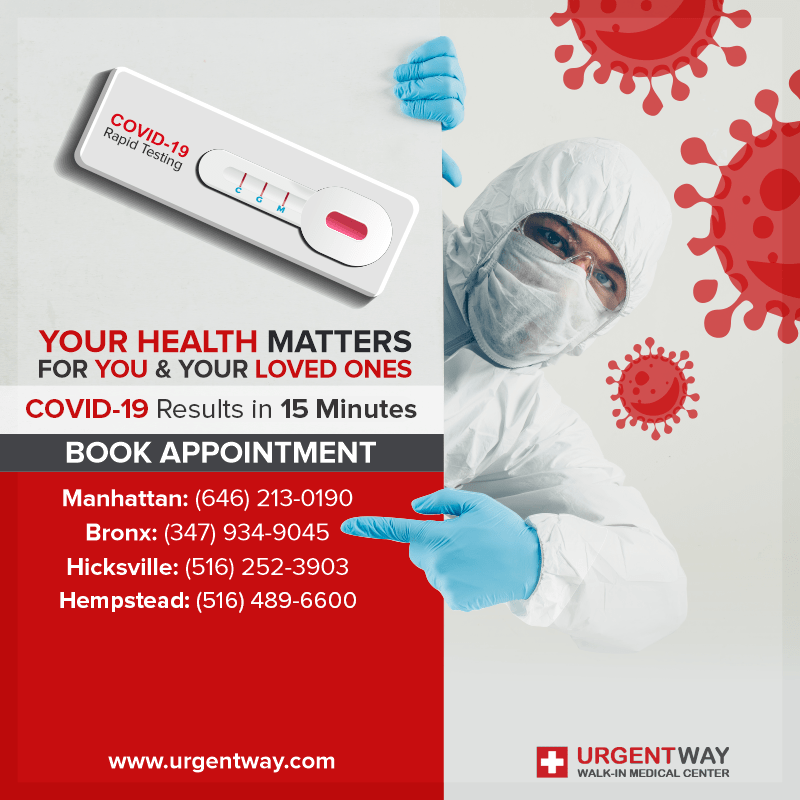Asthma is a chronic respiratory condition that causes the narrowing of the airways, resulting in breathing difficulty. When children are exposed to certain triggers like pollen, cold, or respiratory infection, asthma can arise. Asthma attack in children is also known as pediatric asthma. The lungs of children who have asthma symptoms can quickly get inflamed when they’re exposed to any trigger. Children’s asthma is not significantly different from adult asthma, but children can suffer from more challenging conditions. Children’s asthma can’t be cured completely, but symptoms can be controlled to prevent lung damage. Sometimes, asthma attacks in children can lead to a visit or admission to the hospital.
Signs And Symptoms Of Asthma In Children
Not all children with asthma conditions have the same signs and symptoms. A single child may have different symptoms in each asthma attack. The general symptoms and signs of children’s asthma are the following:
- Persistent coughing
- Coughing that happens during playing, cold air, laughing, or crying
- Deficiency of energy while playing
- Avoiding sports and social activities
- Disturbance in the sleeping pattern due to persistent coughing or breathing problems
- Rapid and shortness of breathing
- Chest pain and tightness
- Wheezing while breathing
- Tight neck and chest muscles
- Feeling tired
- Joint and muscles pain
- Trouble eating
Severe Asthma Attack Symptoms
Following are the symptoms of a severe asthma attack that require immediate medical attention:
- Stopping in the middle of a sentence to catch my breath
- Using stomach muscles to breathe
- Chest pull-in while breathing
- Severe wheezing
- Severe persistent coughing
- Fast heartbeat
- Blue lips
- Sweating
- Chest pain
- Sinking of the belly during expiration
Causes Of Asthma Attack In Children
The following are the major causes of an asthma attacks in children:
1) Airways Infections
The infection occurs in the airways due to colds, pneumonia, and sinus that result in an asthma attacks in children.
2) Allergens
Sometimes, children’s exposure to allergens such as dust, mites, mold, pollen, and pet dander can cause an asthma attack in children.
3) Irritants
Several irritants also lead to an asthma attacks in children. These irritants include chemicals, cold air, smoke, aerosols, and pollutants in the atmosphere.
4) Exercise
Strenuous exercise can cause shortness of breath which may lead to an asthma attack in children.
5) Stress
Stress is a significant cause triggering an asthma attacks in children and adults. Stress interrupts our hormones and disturbs the normal functioning of the lungs.
Risk Factors Of Asthma In Children
Asthma is one of the leading causes of children’s long-term illnesses. The following risk factors make a child more likely to have asthma includes:
- Low birth weight
- Family history
- Nasal & other allergies
- Exposure to tobacco directly or indirectly
- Being raised in a poor environment
Pediatric Asthma Diagnosis
The diagnosis of pediatric asthma includes:
1) Questions About Medical History And Symptoms
During this diagnosis method, the doctor asks for a family history of asthma, eczema, and lung diseases. The doctor also asks for other symptoms in the children, if any, and how often these occur.
2) Physical Exam
In this diagnosis method, the doctor listens to the children’s heartbeats, examines their lungs, and checks their eyes, and nose to diagnose asthma symptoms and their severity.
3) Tests
Chest X-rays, blood tests, skin tests, and lung tests (spirometry) help find out the triggers of asthma symptoms in children.
Treatment Of Children’s Asthma Attacks
Based on the children’s history and the severity of symptoms, the doctor will make a care plan known as an asthma action plan. This plan contains information on how much and when the medications should be used. The medicines approved for the children are given in doses according to their age, weight, and immune system. There are mainly two types of asthma medications:
Quick-Relief Medication
These medicines provide children with immediate relief from asthma symptoms. These medicines are also known as short-acting bronchodilators. These medicines include albuterol and levalbuterol. These medicines are also used to prevent asthma symptoms triggered by exercise.
Long-Lasting Medications
These medicines prevent airway inflammation and keep asthma under control. These medicines are also known as maintenance medications. These medicines include:
Inhaled Corticosteroids
These are the most common anti-inflammatory maintenance medicines to treat asthma. These medicines include fluticasone, budesonide, ciclesonide, and mometasone.
Theophylline
Theophylline is used to open the airways and is taken daily. Theophylline is also known as a bronchodilator.
Leukotriene modifiers
Leukotriene modifier is used to treat mild asthma and is included in the medical plan to control asthma symptoms. These modifiers include montelukast, zafirlukast, and zileuton.
Medication delivery devices
Some asthma medicines are given by devices that deliver the medication directly into the lungs. Inhalation devices include:
- Dry powder inhaler
- Nebulizer
- Metered-dose inhaler
Avoid Children’s Asthma Triggers
To prevent the children’s asthma attack and to keep them from getting worse following steps should be taken:
- Clean the carpets often to avoid dust mites
- Use pest control to prevent cockroach
- Avoid smoking at home
- Avoid scented cleaning products
- Check the air quality of your area daily
- Help your child to maintain a healthy weight
In a child’s asthma attack, the children’s lungs get inflamed due to exposure to triggers such as pollen, mite, cockroach, and fumes. There are certain symptoms to diagnose asthma like shortness of breath, chest pain, wheezing, coughing, fatigue, and trouble sleeping. The following causes arise the children’s pediatric asthma airway infections, allergens, irritants, exercise, and stress. The risk factors that trigger a child’s asthma attack are family history, low weight, passive smoking, and nasal allergy. Child physical exams, questions about family history, and specific tests can diagnose children’s asthma. The treatment includes short-term medicines and long-term medicines to treat the children’s asthma attacks and control asthma symptoms. Some delivery devices such as inhalers and preventive measures also play a vital role in controlling asthma attack.



